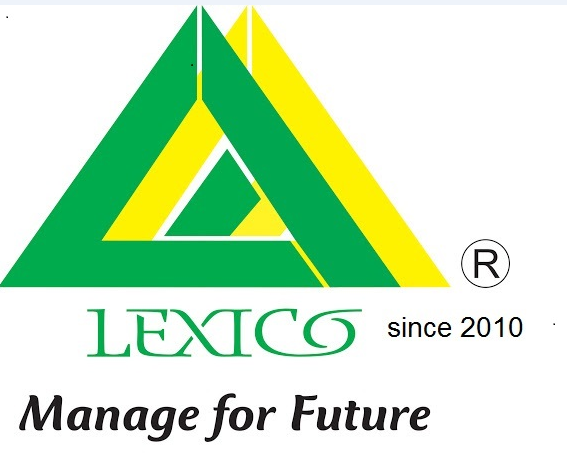
Factors Affecting the Purchase Intention of Vietnamese Consumers for Condominium Apartments in Medium-Sized Urban Areas: A Study in Hai Phong
How to develop condominiums that meet the needs of residents and create a civilized, modern city is a major issue for both city authorities and real estate developers. Therefore, this article aims to:
(1) Explore the characteristics of the condominium market in Vietnamese cities and the purchasing intention of residents;
(2) Analyze the factors affecting the purchasing intention of condominium apartments by residents in urban areas such as Hai Phong city;
(3) Propose some solutions to develop condominium complexes that meet the needs of residents. Data and information for this article are collected through surveys of individuals interested in purchasing housing in Hai Phong city.
The study of the intention to choose to purchase a condominium plays an important role in real estate marketing activities and the development of modern cities in our country. The behavior of purchasing housing is very complex, so it is difficult to find a single model or theory that can fully explain the condominium purchasing decisions of consumers. The process of forming the intention to buy a condominium is a complex process, and therefore, it is impossible to fully and accurately explain all the factors affecting the purchasing intention of residents living in medium-sized urban areas such as Hai Phong.

- Characteristics of the Housing Market and the Development Trend of Condominium Complexes in Medium-Sized Cities in Vietnam
Vietnam is in the process of industrialization, modernization, and rapid urbanization. Cities are constantly expanding and developing. According to the overall urban development plan of Vietnam until 2025, with a vision to 2050, approved by the government in Decision No. 445/QD-TTg: In 2015, the national urbanization rate was predicted to be 38%, in 2020 it was 45%, and in 2025 it is projected to be 50%. Therefore, the demand for housing in urban areas in the coming years will be very large and growing rapidly. There is a direct relationship between urbanization and housing demand. Housing is a basic human need, so as a country urbanizes more, it will need more housing to adapt to the growing population in urban centers. The demand for housing in urban areas arises from both natural and mechanical population growth, as well as changes in household structure. Additionally, the increased demand for housing is also driven by the desire for improved living standards and a larger average living space per person. Urban renewal, expansion of road infrastructure, and the construction of social infrastructure also require housing for relocation, land clearance, and resettlement.
The Vietnamese real estate market is still growing strongly, but there is a significant imbalance between supply and demand in many market segments, and competition in the real estate business is becoming increasingly fierce. To maintain a competitive position in the market, real estate marketers must remember that consumers' behavior towards purchasing apartments is always highly focused and involves a complex decision-making process. Purchasing an apartment is a very important decision for every customer, as sometimes they have to save for a long time to afford one.
In large cities like Hanoi and Ho Chi Minh City, where the population density is very high and land is very limited, high-rise condominiums are springing up everywhere. The supply of condominium housing to the market is increasing across all segments, from affordable to luxury. Buying and living in condominiums is becoming an inevitable trend for urban residents. However, in medium-sized cities like Hai Phong, where land availability is still relatively abundant, buying and living in condominiums is not yet the dominant trend.
However, in the near future, these cities will also face the same imbalance between supply and demand in real estate as large cities. Therefore, it is necessary to attract residents to buy and live in condominiums in medium-sized cities, meeting the urbanization requirements in the near future. The success of real estate marketing depends on the accurate analysis of customer purchasing behaviors; understanding the factors influencing customers when they decide to buy an apartment. To attract customers, ensure customer satisfaction, and ensure the sustainable development of condominium projects, it is essential to analyze customers' buying behavior and attitudes. However, the reality is that there are very few studies evaluating the attitudes and purchase intentions of Vietnamese consumers when it comes to choosing condominiums in the context of urbanization in medium-sized cities like Hai Phong. Therefore, this article focuses on exploring the attitudes and purchase intentions of consumers towards condominiums in Hai Phong; what factors residents consider when planning to purchase an apartment. The study also explores the attributes and factors affecting the attitude towards condominiums and the intention to buy apartments for living. Understanding the factors affecting the intention to purchase condominiums is very important for real estate developers, urban planning, development, and real estate positioning. Understanding the factors affecting customers' purchase intentions will directly help in formulating strategies and marketing policies to attract customers to buy condominiums.
- Theoretical Basis on the Factors Affecting Consumers' Intentions to Buy Apartments
Consumer behavior is defined as "the behavior that consumers engage in when searching for, purchasing, using, evaluating, and processing products, services, and ideas they believe will satisfy their needs." The process of decision-making in consumer purchases is very complex. Understanding consumer purchasing behavior is not easy, because consumers themselves often do not fully know what influences their purchasing process (Kotler & Armstrong, 2005). Housing purchase behavior, particularly apartment purchases, is even more complicated because housing is a high-value product, and the purchase decision is very important.
Buying a home is one of the most significant economic decisions for people across all income levels. Therefore, buyers often demand to gather and synthesize a lot of information about features, quality, facilities, design, price, and the surrounding environment. Many studies have been conducted to explore the characteristics of apartment buying behavior and the factors influencing this behavior. Purchase intention is an indicator of a person's readiness to make a purchase, and it is considered a direct precursor to the actual purchase behavior. In the case of buying an apartment, purchase intention is the precursor to the buying decision.
The factors influencing apartment purchase intentions can be divided into the following groups:
-
Cultural and Social Factors: These include aspects such as habits, social values, the influence of family and friends, as well as community and surrounding environmental factors.
-
Psychological and Personal Factors of Consumers: These factors include personal needs, preferences, and psychological elements such as the sense of safety, satisfaction from owning a property, and aspects related to the ownership of a major asset.
-
Factors Reflecting the Value of the Apartment Complex to Consumers: These include quality of life, amenities, facilities, design, and the surrounding environment of the apartment project.
The decision-making process in purchasing real estate also goes through five stages, similar to the process of purchasing other valuable goods. Buyers begin by recognizing the need, then proceed to search for information, evaluate options, make a purchase decision, and finally execute the purchase of real estate. During this process, buyers seek information about the apartment’s quality, including its location, surrounding environment, and infrastructure.
The factors affecting the decision to purchase an apartment not only relate to the consumers themselves but also depend on the external environment and the marketing activities of real estate developers. Research has also shown that decisions about where to live, especially in real estate, are heavily influenced by public administrative services and the costs of integrating into a community.
Consumer behavior theory has revealed that the most important factors in apartment selection are budget, residential environment, transportation infrastructure, and other factors related to infrastructure and connectivity.
3. Factors Affecting the Intent to Buy Condominiums Among Urban Residents in Vietnam (A Study in Hai Phong)
The survey results on the intent to purchase a condominium and the factors influencing the intention of urban residents in Hai Phong to buy apartments revealed the main findings below.
- A significant proportion of the people in Hai Phong intend to buy a condominium for living (52%). An increasing number of people prefer owning an apartment and are looking to buy condominiums rather than land for construction. The demand and trend of purchasing apartments are gradually developing. Due to rapid urbanization, the scarcity of land, rising land prices, high risks when buying land, complex procedures for registering land ownership, the trend of dividing households into smaller family units, and high construction material costs, several significant changes in the real estate sector have altered people's attitudes toward housing in urban areas. In particular, young civil servant families express a preference for ready-to-move-in apartments over buying land to build a house. This is why people are shifting to looking for apartments from real estate companies developing condominium projects.
To assess the impact of various factors on the intention to buy a condominium, we focused on four main groups of factors: cultural changes, land issues, urbanization and population pressure, and factors related to the value offered by condominium projects, including quality, services, environment, and price. These factors influence customers' attitudes toward condominiums and, through that, their intention to purchase.
Cultural Changes
Culture is a set of values, beliefs, customs, rules, ethics, and traditions shared within a society. Culture drives consumer behavior. Cultural changes, such as the tendency of Vietnamese people to live alone, the culture of enjoying life, and the desire for modern amenities in apartments, are impacting the real estate business. These changes stem from the shift from extended families to nuclear families (restructuring households into individual family units), Western culture, the increasing trend of living alone in urban areas, and the increased demand for apartment living. Cultural changes like restructuring families into individual units, Western culture, plans to live alone, and the demand for amenities and safety services in apartments are strongly influencing the intention to buy apartments in Hai Phong.
Land Issues for Urban Housing Development
The demand for housing in urban areas is increasing, but land is limited. Due to this, land prices are soaring. As a result, people are reluctant to buy land for construction. Consumers are turning to developers selling apartments. Many land-related issues, such as land shortages, risks when buying land, high registration costs, high land prices, and lack of knowledge about land ownership procedures, have changed consumer attitudes toward condominiums and promoted the intention to buy.
Urbanization and Population Pressure
The population growth rate in Hai Phong's inner city is rapidly increasing. The pace of urbanization is accelerating, leading to a swift rise in the demand for housing. There is a direct relationship between urbanization speed and the growth rate of housing demand. The increasing population in Hai Phong creates great potential for the housing market. Factors that strongly influence the intention to buy condominiums include rapid population growth, fast urban development, urbanization pressures, job opportunities in urban areas, and quality educational institutions in these areas, creating opportunities for condominium projects. Homebuyers are also influenced by public administrative services provided by local authorities at residential locations. The quality of the living environment surrounding condominium projects is an important factor in the decision to purchase a condominium, which depends on urban management capabilities.
Factors Related to Condominium Projects
There are various factors affecting the intention to purchase a condominium among residents of medium-sized cities like Hai Phong, with many factors related to the value of the condominium to them. These factors include location, residential environment, proximity to workplaces, educational institutions, relatives living nearby, access to main roads, affordable prices, the quality of urban services, service fees, the size and quality of the apartment, and more. These factors not only shape the intention to buy a condominium but also drive the choice to actually purchase one. Naturally, the priority order of these factors for urban residents in medium-sized cities, where land prices are still relatively low, is different from residents of larger cities, where land prices are very high.
-
The quality of the building design, types of apartments, size, security, facilities, interior design, ventilation, location, suitable services (timely handover, quality maintenance, after-sales service), easy access (transportation hubs), project amenities (parking, community rooms, generators), price (financing conditions), and the developer's brand and reputation are crucial factors influencing the decision to purchase a condominium in Hai Phong. Survey results show that customers intend to buy diverse apartments with modern amenities, standardized services, and safety.
-
The people of Hai Phong also care about factors such as customer costs (price, credit, installment payments); apartment quality (materials, kitchens, natural lighting, external windows); water supply systems (plumbing, water quality, water pressure, drainage, internal architecture); environmental quality (traffic, noise, security); and the infrastructure of the condominium (parking, corridors, external staircases, elevators, storage rooms).
-
Expert opinions, advertising, and promotions also significantly impact the intention to purchase a condominium. The intention to buy is strongly influenced by word-of-mouth information (positive recommendations from those who have already purchased, encouragement from friends and relatives who have bought apartments).
-
The research findings show a strong relationship between customer satisfaction, word-of-mouth information, and customer loyalty. Satisfaction, word-of-mouth, and loyalty are significant factors influencing the intention to buy a condominium.
-
The study also highlights that "environmental quality plays a crucial role in customer satisfaction when buying a condominium." Environmental quality includes natural environmental factors like green spaces, water quality, air quality, and social environment factors such as security and the demographics of the area.
-
Those who intend to buy a condominium are most concerned about the quality of services for residents in the condominium. Potential buyers care about the quality of services in condominium projects. A key finding is that those intending to buy a condominium want an apartment in a diverse, well-integrated project. They prefer condominiums with complete urban structures, including all services such as offices, shopping centers, residences, schools, swimming pools, gyms, banks, hospitals, etc. Projects with amenities like swimming pools, gyms, and shopping centers in the same building are highly attractive, as they offer both technical infrastructure and social amenities. If condominium projects maintain high integration, they are sure to attract a large number of customers.
4. Some Solutions for Developing Condominiums to Meet the Needs of Urban Residents in Medium-Sized Cities in Vietnam
Based on the findings of factors influencing the intention to purchase a condominium, several solutions can be proposed to promote the trend of buying condominiums in rapidly urbanizing medium-sized cities like Hai Phong.
-
First, the city needs to develop a reasonable plan with a long-term vision about urbanization trends to allocate land for developing condominium areas that are connected to transportation and other infrastructure of the city. Residential areas should be reasonably distributed near industrial zones and other industrial business facilities. The location of condominium areas is a key factor affecting residents' choice of condominiums.
-
Condominium projects need reasonable planning to ensure the consistency of both technical infrastructure and social infrastructure, such as commercial centers, schools, hospitals, entertainment, sports facilities, green landscapes, and water bodies. Newer cities like Hai Phong still have large plots of land that can be proactively developed into complete urban areas with all necessary elements.
-
High-rise condominium buildings must ensure construction quality and aesthetic convenience, with reasonable design, water supply and drainage systems, parking areas, and complete supporting services. Specifically, it is important to ensure that the apartment design meets the living standards of young people working in offices, who prefer living according to new cultural values.
-
Existing high-rise condominium projects require a good management system to ensure that services for residents are complete. Security is particularly important because people intending to buy condominiums always place high importance on security and the presence of schools in the area. If real estate companies provide good, stable service quality for residents, new condominium projects will serve as the most convincing evidence for potential buyers.
-
As condominium prices remain an important selection criterion for buyers, particularly for low-income and working-class customers, businesses need to study market segmentation to develop condominium types with quality and prices that suit the purchasing power of each customer group. Companies also need to find ways to reduce the cost of condominium products.
-
Real estate companies should also enhance communication activities to persuade customers, with a focus on word-of-mouth information from people who already live in the condominiums.
FACTORS AFFECTING APARTMENT PURCHASE
INTENTION OF VIETNAMESE CONSUMERS
IN MEDIUM-SIZE CITIES IN VIETNAM:
STUDYING IN HAI PHONG CITY
Le Va XI
Hai Phong Economic Zone Authority
ABSTRACT:
The housing market in the medium-size cities in Vietnam like Hai Phong city has changed with the surge of high-rise apartment buildings. These buildings provide tens of thousands of partments to the market. However, the shift in demand from the house with land to the apparmetnt is still slow. How to develop apartment buildings which meet requirements of consumers in order to create a modern city is a major concern of both Hai Phong city’s authorites and real estate enterprises. Hence, this study is to: (1) Analyzing the characteristics of apartment markets in Vietnamese urban areas and the apartment purchase intention of consumers; (2) Analyzing factors affecting apartment purchase intention of consumers in urban areas like Hai Phong city; (3) Proposing solutions to develop apartment buildings that can meet requirements of consumers. The study used data and information collecting by surveying people who want to purchase house in Hai Phong city.
** Bài báo này được đăng trên Tạp chí Cơ quan Thông tin Lý luận của Bộ Công thương [Số 1 - Tháng 1 năm 2017]
Ngày nhận bài: 23/12/2016
Ngày phản biện đánh giá và sửa chữa: 2/1/2017
Ngày chấp nhận đăng bài: 12/1/2017
Thông tin tác giả:
Ths. Lê Va Xi
Ban Quản lý khu kinh tế Hải Phòng








